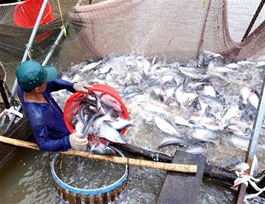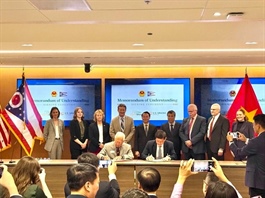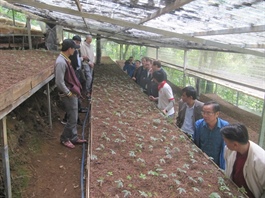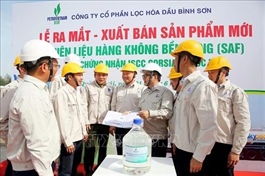Conformity complexities on way out through resolution
Conformity complexities on way out through resolution
Agricultural players are seeking the removal of particular compliance procedures and costs through Vietnam’s new vision on boosting the private sector.
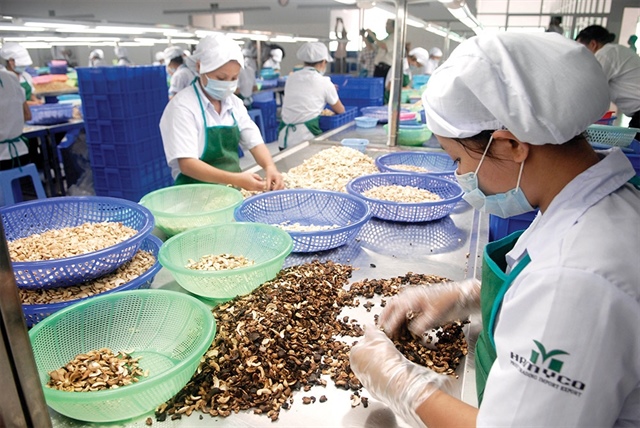
Proposals to help agricultural businesses save money and time are coming thick and fast, photo Le Toan |
With the introduction of Resolution No.68-NQ/TW on developing the private economy, representatives of several associations in agriculture, such as animal feed, animal husbandry, and fertilisers, hope that it will aid the removal of the conformity declaration.
In Vietnam, conformity declaration is a process in which manufacturers or importers announce that their products comply with relevant national technical regulations and standards. It is currently still a mandatory procedure.
“Several unnecessary and cumbersome procedures have been proposed for removal in the draft revised Law on Product and Goods Quality to help companies avoid wasting money, one of which is the removal of the conformity declaration,” said Nguyen Xuan Duong, chairman Animal Husbandry Association of Vietnam.
“We hope that the resolution will contribute to uniting agricultural businesses. Associations in the sector have organised numerous workshops with policymakers to provide feedback and propose adjustments to the draft. At the same time, we have submitted other proposals to the central leadership, but they have not yet been approved,” Duong stated.
At a recent session of the National Assembly Standing Committee, deputy Tran Thi Van representing the northern province of Bac Ninh said that currently, around 20 associations representing hundreds of member businesses, along with the Vietnam Chamber of Commerce and Industry, have held multiple workshops to assess the impact of the regulation. They unanimously proposed abolishing the requirement for a conformity announcement in the draft law.
According to Van, completing a conformity announcement procedure for a product costs businesses an average of $120-200, with some cases reaching $600-1,200. This procedure must be repeated every three years, creating a continuous cycle of waste.
For a factory with 300-500 products, the cost could escalate to $60,000-80,000. The evaluation process for each product takes 15-30 days.
Moreover, each product can only be certified for a single factory, meaning businesses with multiple production facilities must repeatedly undertake this unreasonable procedure, leading to systematic waste and significant time and cost burdens for enterprises.
NA deputy Trinh Thi Tu Anh representing the Central Highlands province of Lam Dong noted that while the purpose of many national technical standards is to ensure quality and safety, they inadvertently create unnecessary technical barriers, placing significant pressure on the business community.
“Additionally, maintaining a widespread pre-audit system with numerous administrative procedures for low-risk products is dispersing and wasting the resources of regulatory agencies,” Anh said.
Therefore, she proposed narrowing the scope of mandatory standards by conducting a comprehensive review to identify products and goods that genuinely pose high risks to human health, national safety, and the environment for mandatory compliance. Low or medium-risk products should be shifted to more flexible management approaches.
Responding to the NA deputies’ opinions, Deputy Prime Minister Nguyen Chi Dung said, “Conformity announcement is a tool to manage product and goods quality before they enter the market. Without standards for management and oversight, including pre-auditing, it would directly affect the safety of the community and the environment.”
The key issue is determining which goods to regulate and to what extent, to ensure product quality while reducing compliance costs and time, thereby enhancing business competitiveness, DPM Dung said.
“As some deputies have mentioned, completely abolishing standards and regulations would make state management very difficult. However, applying them in a way that creates barriers and increases costs and time for businesses is also unacceptable. We will review this in line with that spirit, meaning we must manage effectively while fostering development, in accordance with the latest directives,” the deputy PM stated.
- 14:37 06/06/2025



